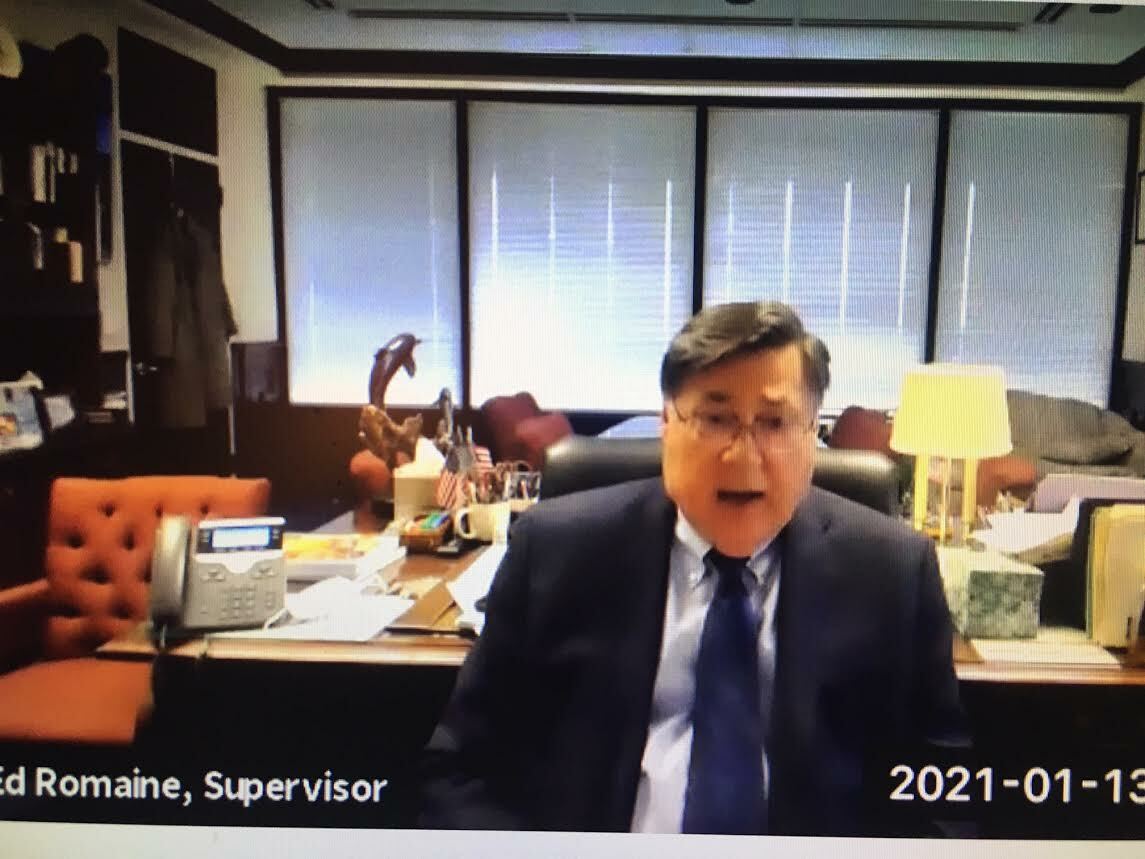
As expected, the Central Pine Barrens Commission, after more than a year of review, including several revisions to the plan, extensions and public hearings, voted to approve the Lewis Road Residential Planned Development during its meeting via zoom teleconference on January 20.
The plan to develop some 600 acres of land in the Central Pine Barrens in East Quogue as a 118- unit golf resort has already spurred two legal actions looking to overturn earlier decisions made on the town level, Robert DeLuca, president of the Group for the East End, reminded this week. His group, along with the Pine Barrens Society, State Assemblyman Fred W, Thiele Jr., the East Quogue Civic Association and neighbors are the litigants in the pending matters.
Commissioner Ed Romaine, who is also Brookhaven Town Supervisor, offered the sole “no” vote on the plan on Thursday afternoon. Earlier this month, he predicted that whichever way the vote went, there would be a legal action.
Voting in the assent were Southampton Town Supervisor Jay Schneiderman, Riverhead Town Supervisor Yvette Aguiar, and Dorian Dale, acting on behalf of Suffolk County Executive Steve Bellone.
The commission was one member short, following the promotion of its chair, Carrie Meek Gallagher. She was director of the New York State Department of Environmental Conservation’s Long Island office, representing Governor Andrew Cuomo on the commission, and was recently elevated to the position of executive deputy commissioner, second in command of the entire DEC.
The failure of the governor to appoint her replacement in time for the vote was among a laundry list of objections Mr. Romaine voiced, both during deliberations at a special meeting on January 13 and at the vote on January 20.
The next step in the process for developers Discovery Land involves the Southampton Town Planning Board. Its task is to take action on the preliminary subdivision it approved previously and voting to approve the “final” subdivision map. In October 2019, the board approved the preliminary subdivision application in a split 4-3 vote. Board members John Zuccarelli, Philip Keith, and John Blaney, and Vice Chair Dennis Finnerty voted in favor of the application, while and Board Chair Jacqui Lofaro and board members Robin Long and Glorian Berk said ‘no.’
That October 2019 approval is the subject of litigation brought by environmentalists, as is a prior Zoning Board of Appeals determination — that an 18-hole golf course is considered an “accessory use” to the residential development.
According to Mr. DeLuca, New York State law provides that a municipality’s final subdivision map cannot substantially deviate from the approved preliminary map without reopening the review. Mr. Romaine argued the map changed, with revisions presented several times during the commission's review. Colleagues disagreed, opining that any changes made to the plan were not substantial enough to warrant a new application and starting the process over.
One of the lawsuits wending its way through the courts looks askance on the town’s review as required by the State Environmental Quality Review Act.
Offered a resolution adopting SEQRA findings and approving the project, Mr. Romaine asked, “How are we empowered to do this?” He argued the SEQRA review was not coordinated among agencies, none of whom was declared the lead reviewer.
“The Town Board was the lead agency,” Mr. Schneidmeran put forth.
“They were the lead agency for The Hills, which is a totally different project,” Mr. Romaine argued. The Hills was an earlier iteration of the Lewis Road RPD; that project was denied by the Town Board.
“How did we get here for this SEQRA?” Mr. Romaine persisted
According to Mr. Schneiderman, the commission asserted jurisdiction based on the original proposal. “But this proposal is totally different than the original proposal,” Mr. Romaine continued.
To his insistence that there had been no coordinated review or lead agency declared for the Lewis Road project, John Milazzo, the commission’s attorney, noted those issues arose during public hearings on the project and were addressed.
“I believe by adopting these statements, this is a fatal flaw for approval for these projects,” Mr. Romaine rebuked. “There’s no one here who thinks this is going to end with the commission’s decision. This is going to be litigated … I think there are substantial legal issues that go to the heart of this matter.”
“There’s been extensive SEQRA done on this project, both by the Town Board and the Planning Board,” Mr. Schneiderman stated. Running through aspects of The Hills project, he agreed many things changed from the one project to the next. But the changes lessened the environmental impact of the original plan, he said.